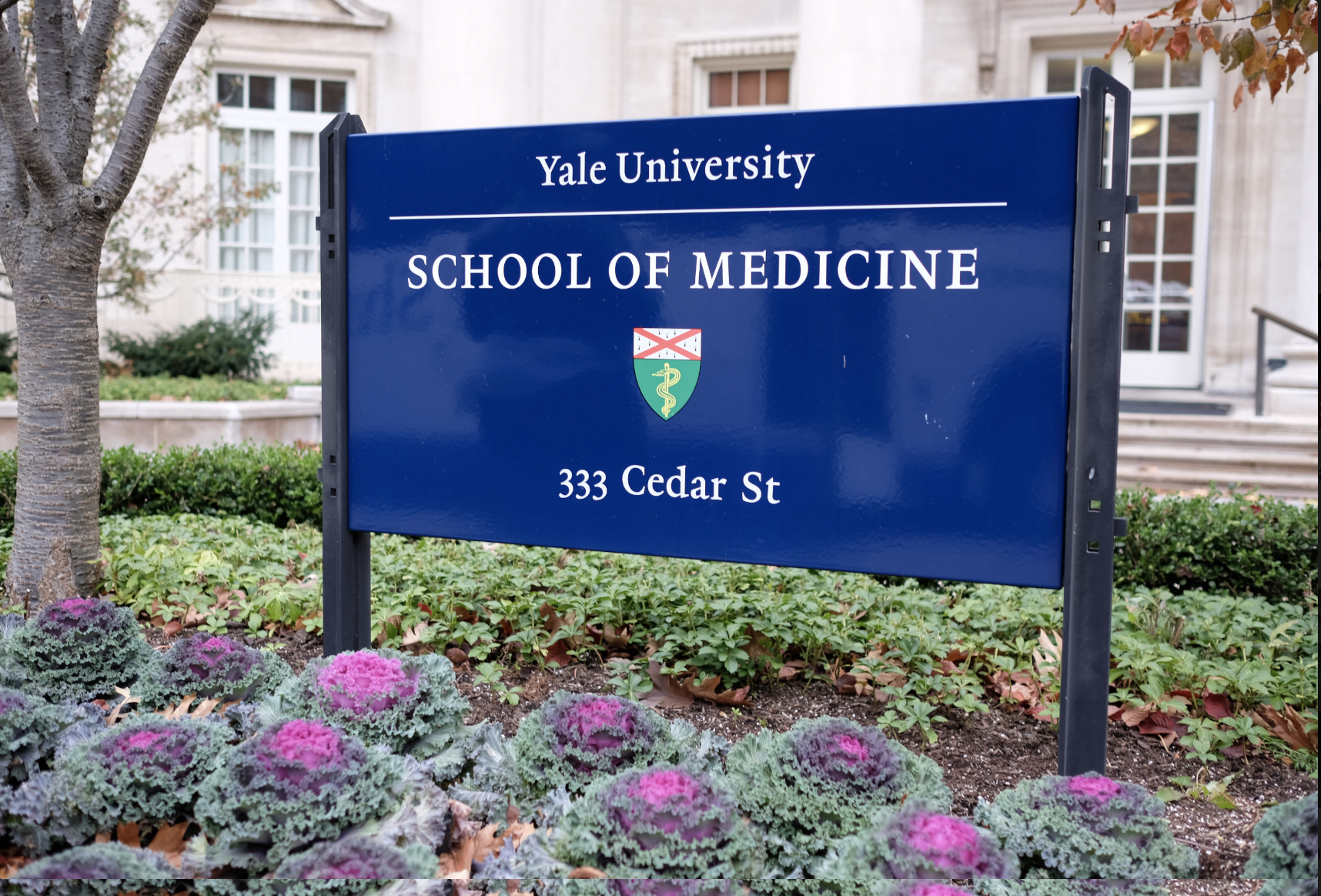
Eric Wang, Senior Photographer
Researchers at the Yale School of Medicine have identified genes that could be future targets for COVID-19 treatments.
In a partnership with the Broad Institute of MIT and Harvard, researchers at the School of Medicine’s Department of Immunology performed a genome-wide CRISPR screen, which evaluated each of the 20,000 preselected genes in the African green monkey genome that could affect coronavirus infections. This technique allowed researchers to quickly and effectively evaluate the genetic information from over a million modified cells.
According to assistant professor of laboratory medicine and immunobiology Craig Wilen, using a genetically modified virus called a CRISPR library, certain genes of interest were knocked out in the monkey cells in order to stop their products from being made and used in the cell. The cells were then infected with the coronavirus, and those that survived were analyzed to detect what genes were knocked out and could be affecting viral infection. The results pointed to over 25 possible host genes related to infection, but two specific hits — for receptor and enzyme encoding genes — seemed most promising as treatment targets.
“We think it’s possible that you could develop drugs that affect human targets,” Wilen said. “And the advantage there is it would be conserved and function across different coronaviruses.”
Jin Wei, the study’s primary author and a postdoctoral associate at Wilen’s lab, explained that he was directly involved in identifying the host genes critical to coronavirus infections.
According to Wei, the lab had prior experience in studying the modes of infections of RNA viruses such as MERS and other coronaviruses. This previous work meant they were uniquely prepared to study the genes that affect the SARS-CoV-2 virus infection — which had never been done before.
“We found there is no CRISPR screens for host genes for any coronaviruses, which may reveal novel therapeutic targets and inform our understanding of COVID-19 pathogenesis,” Wei wrote in an email to the News. “We leveraged our expertise with RNA virus pathogenesis and CRISPR screening to identify the host factors that are essential for SARS-CoV-2 infection.”
Mia Madel Alfajaro, another postdoctoral associate at Wilen’s lab, explained that they found two important genes during their screening process that, when absent, helped cells survive the virus infection. One of them encodes the SARS-Cov-2 receptor, while the other is translated into an enzyme that aids the coronavirus in entering the cell.
Scientists at the Broad Institute provided the Yale researchers with the CRISPR library to be used in the monkey cells and the analyses they ran on the surviving cells’ genetic material.
“Our group has significant expertise and capacity in terms of making CRISPR libraries, turning them from an idea into an actual test tube of particles,” John Doench, an institute scientist at the Broad Institute, said.
Wei and Doench believe one of the main findings of the study comes from the comparison between SARS-CoV-2 and another coronavirus, MERS-CoV. These genetic hits that affect coronaviruses in general could be useful in finding “pan-coronavirus” treatments, according to Wilen.
According to Alfajaro, one of the limitations of this study is that there is no way to mimic exactly the behavior of a human being’s lung cells, which means there are still many steps to be taken before a treatment is developed.
“If we have [found] molecules, peptides or chemical inhibitors or COVID-19, that would be great,” Alfajaro said. “It will take time because some of the hits need to be developed.”
Alfajaro believes drugs that are already approved by the FDA could be a possible focus for future research, since some of the drugs already on the market could affect the molecules found during the screening.
Doench does not believe that the main goal of the study was finding a drug that would end the pandemic. He argued that a future drug may be able to target the genes they found to create therapeutics for COVID-19, but that more work needs to be done.
“From doing a genetic screen in a cell line in a monkey to having a drug target, there is so much science that needs to happen,” he said.
According to Doench, the only way to stop the pandemic is through social distancing, wearing masks and eventually developing a vaccine.
The Broad Institute of MIT and Harvard was founded in 2004.
Beatriz Horta | beatriz.horta@yale.edu







